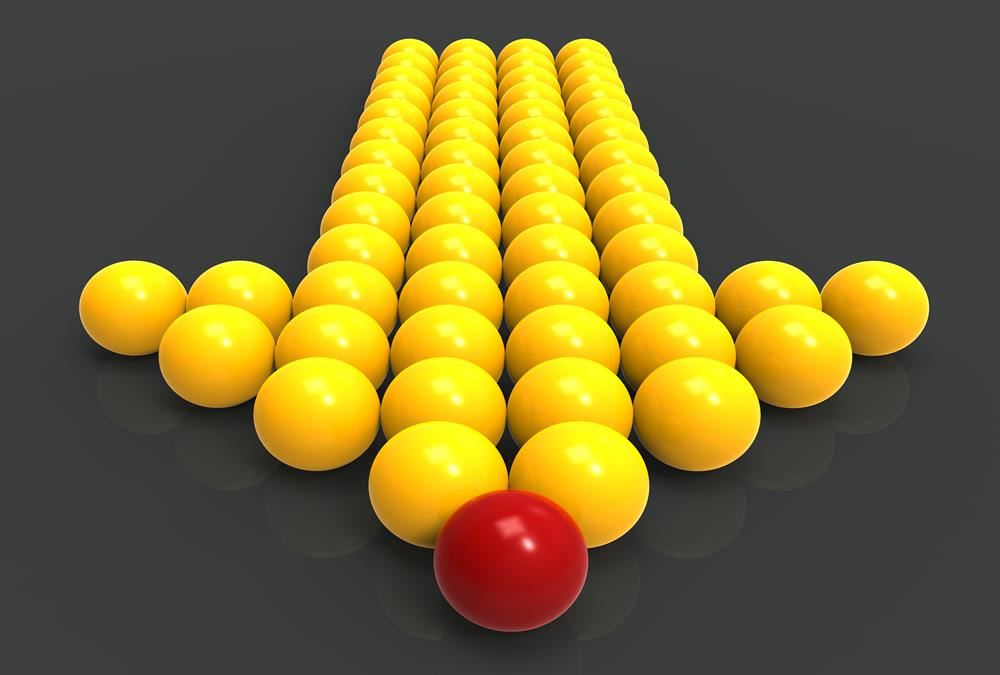- Home
- Business Processes
- Industry Knowledge
- Aerospace Industry
- Automotive Industry
- Banking Domain
- BFSI Industry
- Consumer/ FMCG Industry
- Chemicals Industry
- Engineering & Construction
- Energy Industry
- Education Domain
- Finance Domain
- Hospitality Domain
- Healthcare Industry
- Insurance Domain
- Retail Industry
- Travel and Tourism Domain
- Telecom Industry
- Leadership Skills
- eLearning
- Home
- Leadership Skills
- Leadership Theories
- Leadership Substitute Theory
Leadership Substitute Theory
Substitutes for leadership theory is based on understanding the context within which leadership occurs. Different situational factors can enhance, neutralize, or substitute for leader behaviors like under certain circumstances, situational factors may substitute for leadership. These substitutes are of two types - substitutes and neutralizers. Substitutes take away from the leader's power and help group members increase their performance. Neutralizers only remove influence from the leader.
Related Links
You May Also Like
-
Have you ever resonated that there seem to be as many different ways to lead people as there have been great leaders? When we recall the success of Mahatma Gandhi, Nelson Mandela, Abraham Lincoln, Napoleon Bonaparte to Steve Jobs and Jack Welch, we also notice that they all used different approaches that were suitable to their specific situations and circumstances. Over the last century, researchers and psychologists have developed simple ways to describe the “Styles of leadership” and in this section, we will explore these commonly known leadership styles.
-
Role theory is a concept in sociology and the role theory of leadership borrows these concepts to explain how people adapt to specific organizational and leadership roles. How the leaders and followers in an organizational context define their own roles, define the roles of others, how people act in their roles and how people expect people to act in their roles within the organization.
-
There are four characteristics of leadership that help us to understand the character of leadership as a concept. 1. Leadership is a process, 2. Leadership involves influence, 3. Leadership always occurs in a group context and 4. Leadership involves goal attainment. These are the four components that make up the character of the 'leadership' term and help us to define the leadership concept. All of these components of leadership have common characteristics.
-
Communication has as its central objective the transmission of meaning. The process of communication is successful only when the receiver understands an idea as the sender intended it. How does a message or an idea travel from one person to another? To transmit our message, we engage in a sensitive and complex process of communication, with different elements like sender, message, channels, receiver, noise, and feedback.
-
Michigan Leadership Studies led to behavioral Leadership Theory as a result of a leadership study conducted at the University of Michigan. Michigan studies identified three important behaviors of leadership called task-oriented behavior, relationship-oriented behavior, and participative leadership. Two leadership styles associated with studies are employee orientation and production orientation.
-
Blake and Mouton Managerial Grid is a style leadership model that identified five manager styles based on two dimensions viz concern for people and the concern for production. Managerial Grid uses concern for production style which is largely based on McGregor's Theory X.
-
University of Iowa Studies was the first leadership study to analyze leadership using scientific methodology. The study was conducted by Lewin, Lippitt, and White and worked on different styles of leadership. The studies explored three leadership styles - authoritarian, democratic, and laissez-fair leaders. This early study was very influential and established three major leadership styles.
-
The great man theory of leadership is a 19th-century idea that states a person is either a natural-born leader or not. Some people are born with the necessary leadership attributes that help them create a great impact on society, politics, or the military. The theory focuses on identifying the innate qualities and characteristics possessed by great men.
-
The four theory of leadership was formulated after studying hundreds of leaders and the model includes four basic dimensions of effective leadership - support; interaction; facilitation; goal emphasis, and work facilitation. This model was tested as a predictor of an organization's effectiveness.
-
Neo-Emergent Leadership theory supports that leadership is created through the emergence of information. Leaders can only be recognized after a goal is met. Follower’s perception of leaders is influenced by the ways these goals were accomplished.
Explore Our Free Training Articles or
Sign Up to Start With Our eLearning Courses

About Us
Learning
© 2023 TechnoFunc, All Rights Reserved










